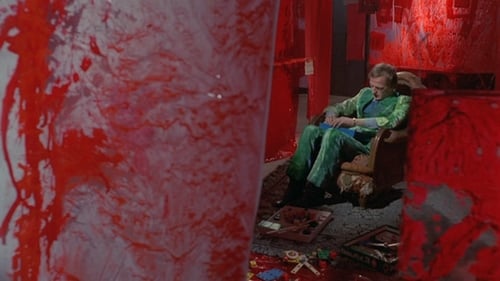
Producer
Evolves around the rooms of a house as one of the main characters, Lisiska, is waiting and is studied in depth as she prepares herself for a meeting. The film attempts to display sexual barriers and misconceptions, and about the role-playing and the confusion around the whole question of sexual and sensual involvement. The essence is the confrontation with self-deception, lies and the real fear of contact with both sexes.

Producer
A man walks towards the camera down the end of a street to the sound of 'Jesus’ Blood Never Failed Me Yet', a composition by Gavin Bryars based on a loop of an anonymous homeless man singing the song. The man’s voice is progressively intensified by an instrumental accompaniment, which increases in density and richness, before the whole thing gradually fades out. Dwoskin’s film was produced to be shown during the premiere of Jesus' Blood Never Failed Me Yet at the Queen Elizabeth Hall, London in December 1972. For Dwoskin, it represents “… the singing voice of the last days of a London drunk (anonymous) as the orchestra raises him to heaven. The faint ghost image of a figure swims gradually to you through the grains of film low light…”

Producer
A surreal and disturbing distillation of Western Civilization, Necropolis is the unhinged vision of Italian director Franco Brocani. Pierre Clémenti is Attila the Hun, naked and on horseback, while Warhol superstar Viva is a drunken and abusive Countess Bathory. A pop pastiche for the psychedelic generation, Necropolis features a soundtrack by Gavin Bryars.

Producer
A sexually frustrated man complies with the emotional and erotic wishes of four women, but afterwards he is left even lonelier than before.

Producer
From one flick of the mare’s tail came an unending stream of images out of which was crystallised the milky way.

Producer
Two women in a living room: smoking, playing cards, listening to the radio. As often in Dwoskin’s films, the use of masks, make-up and costumes allows the characters to playfully transform themselves. Shot in colour film, C-film exuberates swinging London energy. In the second part of the film, the women appear to be watching the rushes of the film on an editing table. ”We are making a movie” we hear them say. As Dwoskin points out, “C-film asks how much is acting acted”, an ongoing question in Dwoskin’s cinema. Produced by Alan Power, with Esther Anderson & Sally Geeson.





